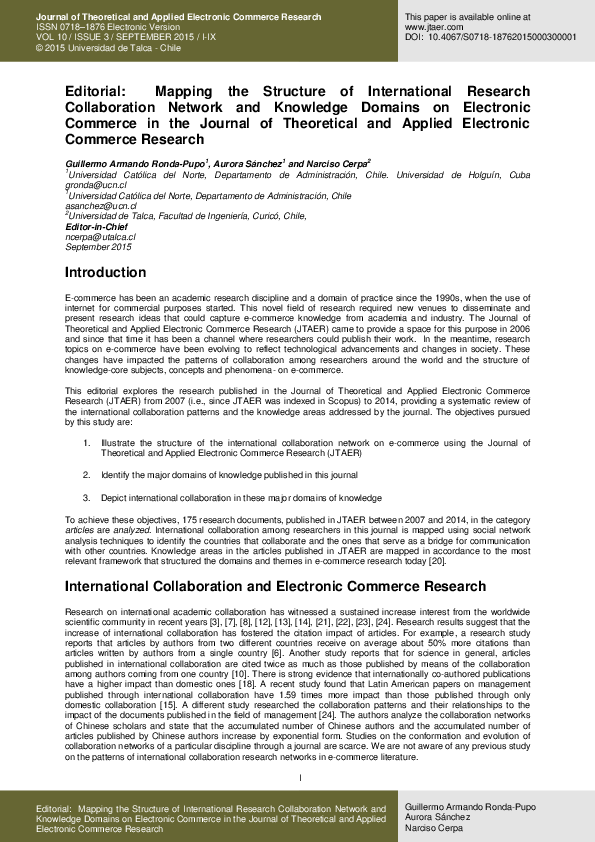Application of a Microeconomic Approach for Explanation of Citizen Participation in Open Government
IF 5.1
3区 管理学
Q1 BUSINESS
Journal of Theoretical and Applied Electronic Commerce Research
Pub Date : 2023-12-29
DOI:10.3390/jtaer19010003
引用次数: 0
Abstract
The digital economy and the sharing economy have changed the role citizens may acquire in society. Citizens can perform at least two roles from the open government perspective: on the one hand, they can be passive users/demanders of information and, on the other hand, they can provide or produce the information in an active manner. The objective of this paper is to offer a theoretical model to explain citizens’ incentives to participate in open government projects. Which is the opportunity cost of participation for the citizen? Which are the drivers of the preferences for the social good? This model is based on the utility function and consumption theory. We complement the theoretical framework with an exploratory–descriptive analysis based on a case study’s primary data about citizen participation. In democracy projects where citizens actively collaborate and could earn monetary gains or become entrepreneurs, the opportunity cost of participation is lower than in a passive type and the amount of the social good depends on the preferences. Preferences for social goods are related to community experiences and e-government and they also affect the decision to participate. Very few studies in the field of open government have pretended to explain citizens’ participation by using microeconomic foundations.应用微观经济学方法解释公民参与开放式政府的问题
数字经济和共享经济改变了公民在社会中可能扮演的角色。从政府开放的角度来看,公民至少可以扮演两种角色:一方面,他们可以是被动的信息使用者/需求者;另一方面,他们可以以主动的方式提供或生产信息。本文旨在提供一个理论模型,解释公民参与开放式政府项目的动机。公民参与的机会成本是多少?哪些是社会公益偏好的驱动因素?该模型基于效用函数和消费理论。我们以一项案例研究中有关公民参与的原始数据为基础,通过探索性描述分析对理论框架进行了补充。在公民积极合作的民主项目中,公民可以获得金钱收益或成为企业家,参与的机会成本低于被动型参与,而社会商品的数量取决于公民的偏好。对社会公益的偏好与社区经验和电子政务有关,也会影响参与的决定。在开放式政府领域,很少有研究试图通过微观经济基础来解释公民的参与。
本文章由计算机程序翻译,如有差异,请以英文原文为准。
求助全文
约1分钟内获得全文
求助全文
来源期刊
CiteScore
9.50
自引率
3.60%
发文量
67
期刊介绍:
The Journal of Theoretical and Applied Electronic Commerce Research (JTAER) has been created to allow researchers, academicians and other professionals an agile and flexible channel of communication in which to share and debate new ideas and emerging technologies concerned with this rapidly evolving field. Business practices, social, cultural and legal concerns, personal privacy and security, communications technologies, mobile connectivity are among the important elements of electronic commerce and are becoming ever more relevant in everyday life. JTAER will assist in extending and improving the use of electronic commerce for the benefit of our society.

 求助内容:
求助内容: 应助结果提醒方式:
应助结果提醒方式:


